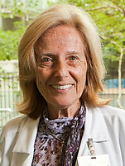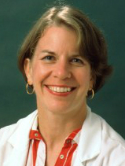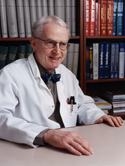| Abstract: |
Background. This study compared the efficacy of granulocyte‐macrophage colony‐stimulating factor (GM‐CSF) alone or in combination with peripheral blood‐derived hematopoietic progenitor cells (PBP) as support for patients receiving high‐dose chemotherapy and assessed the adequacy of these strategies as alternatives to autologous bone marrow rescue. Methods. The authors studied patients with metastatic breast carcinoma who had a major response to conventional chemotherapy or had achieved a complete remission by surgical resection of all known metastases. They were treated with carboplatin 1500 mg/m2, etoposide 1200 mg/m2, and cyclophosphamide 5.0 g/m2. Before this high‐dose chemotherapy, the patients had been randomly assigned to one of two hematopoietic support strategies: GM‐CSF alone (Group 1) or GM‐CSF‐primed PBP and GM‐CSF (Group 2). Autologous bone marrow was harvested from all patients for use only in the event of persistent pancytopenia with marrow aplasia on day 15. Results. A total of 18 patients were treated. Randomization was halted after the initial 10 patients because of the significant advantages for patients in Group 2 in comparison with those in Group 1 in regard to (1) the median number of days to absolute neutrophil count 0.5 × 109/1 (12 versus 21) and platelet count to 50 × 109/1 (13 versus 23), (2) platelet transfusions (3 versus 15.5), and (3) episodes of neutropenic sepsis (0 versus 4, respectively). One patient in Group 1 died from treatment‐related complications. All patients in Group 1 required bone marrow reinfusion. No patient in Group 2 required bone marrow reinfusion, and no early mortality was observed in this group. Eight subsequent patients were treated with PBP and GM‐CSF (Group 3). This group was more heavily pretreated than Groups 1 or 2 and had a slower hematologic recovery than Group 2. However, none of these patients required bone marrow reinfusion. The four patients in Group 1 that did not have early bone marrow rescue all had neutrophil counts of 0.0 on day 15. For Groups 2 and 3, the neutrophil counts on day 15 ranged from 0.3–2.1 × 109/1 (median, 1.9) and from 0.2–2.1 × 109/1 (median 0.6), respectively. Conclusions. The use of PBP plus GM‐CSF accelerated hematologic recovery after this chemotherapeutic. Copyright © 1993 American Cancer Society |















